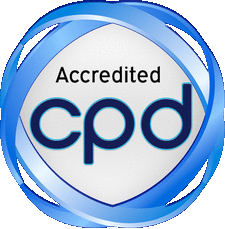
Tayseer Mohamed Idris
Ahmed Gasim Hospital, Sudan
Title: Awareness of kidney transplanted recipients about Over the Counter Drugs (OTC) at Ahmed Gasim Hospital Sudan
Biography
Biography: Tayseer Mohamed Idris
Abstract
Background: OTC drugs are drugs that are dispense without prescription, distributed and sold to consumer for use on their own initiative which means self-medication some of these drugs may interact with immunosuppressant drugs that usually prescribed for kidney transplant recipients, which might leads to deterioration of the kidneys function.
Aim: Th e aim of study was to assess the awareness of kidney transplant recipients about the self-medication and the most common type of illness that are treating by OTC drugs and the reasons behind self-medication practice.
Methodology: The study was a descriptive cross sectional study using a pre-tested questionnaire and direct interview with patients to collect data aft er taking verbal consent from the patients. The subjects of the study are adult females and males who received kidney transplant in or out Sudan and who attend the transplant referral clinic at Ahmed Gasim Hospital at Khartoum North between 5th March 2015 to 5th April 2015. The hospital is specialized in heart and kidney disease. 160 patients were interviewed. The whole number of the patients who are documented in the transplant pharmacy was 1128 patient since 1998. The actual number is unknown. The average number of the patients who were attending every month for the last six months was between 300 and 500. Th is indicates that the whole number is 1000 or less. The study was approved by the Ministry of Health at Khartoum State Ethical Committee. All patients were interviewed directly using pre tested questionnaire for sociodemographic data, their medical profile, their awareness and self-medication behavior after taking verbal consent. Data was analyzed by SPSS.
Results: Total of 160 participants were enrolled, 50% of them were resident in Khartoum State. 121 (75.5%) were males and 9.4% of were illiterate while 26.9% finished or still at university level. The vast majority (90%) of the patients under study were shown to inform the pharmacist that they received a kidney transplant before buying an OTC drug. The percentages of patients, who consult a physician or a pharmacist before taking a new drug, use herbal medicine or who aware about the presence of food drug were 94%, 55.6% and 80%, respectively. 75.5% of the patients studied confirmed a physician consultation when they had an ailment similar to that previously treated by a prescription only drug. The main reason for practicing selfmedication was the patient perception of their condition is simple (44.4%) while the main type of illness was headache (58.8%).
Conclusion: Th e patients were generally highly aware. Th e main reason for self-medication was considering that the case not serious enough to consult a physician and headache was the main reason behind seeking self-medication.
Recommendations: Providing the patients with a safe OTC list may help both the patients and community pharmacist in dispensing the optimum medicine for these patients when it is needed.

